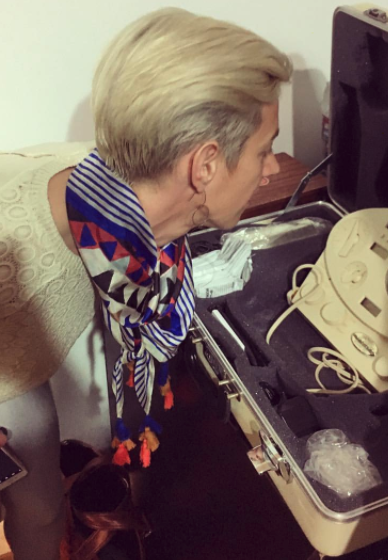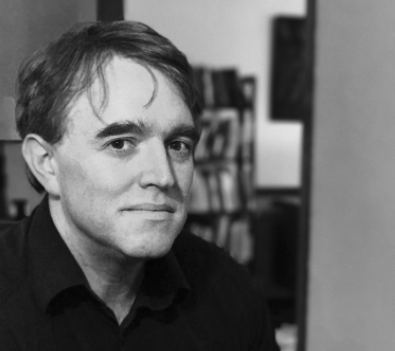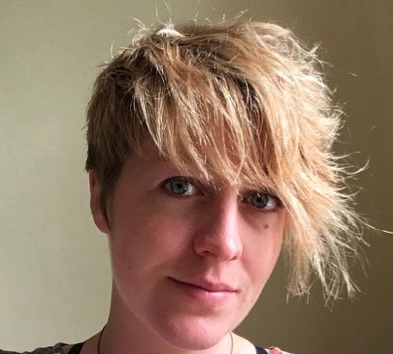Digital Assembly 2017 Symposium
Featuring Lori Emerson (UC-Boulder), Alexander Reid (SUNY-Buffalo),
and Whitney Trettien (UNC-Chapel Hill)
Thursday March 30th, 12pm-4pm UF Informatics Institute, Rm. E252, CSE (Computer Science and Engineering) Building
Friday March 31st, 9am-12pm Scott Nygren Studio Library West Rm. 212
Meet the Speakers
 Lori Emerson
Lori Emerson
Lori Emerson is an Associate Professor in the Department of English and the Intermedia Arts, Writing, and Performance Program at the University of Colorado at Boulder. She is also Founding Director of the Media Archaeology Lab. Emerson writes about media poetics as well as the history of computing, media archaeology, media theory, and digital humanities. She is currently working on two book projects: the first is called “Other Networks” and is a history of telecommunications networks that existed before or outside of the Internet; the second is called “THE LAB BOOK: Situated Practices in Media Studies” (under contract with the University of Minnesota Press) which she is co-writing with Jussi Parikka and Darren Wershler. Emerson is the author of Reading Writing Interfaces: From the Digital to the Bookbound (University of Minnesota Press, June 2014). She is also co-editor of three collections: The Johns Hopkins Guide to Digital Media, with Marie-Laure Ryan and Benjamin Robertson (2014); Writing Surfaces: The Selected Fiction of John Riddell, with Derek Beaulieu (Wilfred Laurier University Press, 2013); and The Alphabet Game: a bpNichol Reader, with Darren Wershler (Coach House Books 2007).
 Alexander Reid
Alexander Reid
Alex Reid is an Associate Professor and Director of Composition and Teaching Fellows at the University at Buffalo where he studies digital rhetoric. He is the author of The Two Virtuals: New Media and Composition and the co-editor of Design Discourse: Composing and Revising Professional Writing Programs. He has published in multiple journals including Computers and Composition, Kairos, and Enculturation. You can read about his research and teaching at digital digs.
 Whitney Trettien
Whitney Trettien
Whitney Trettien is a scholar, creator, and teacher whose work weaves together archival research and creative use of technologies. She has written and designed work in the fields of book history, Renaissance literature, media archaeology, sound studies, and digital humanities. She has a PhD from Duke University, an MS from MIT, and is an Assistant Professor in the Department of English and Comparative Literature at UNC Chapel Hill. you can visit her website at whitneyanntrettien.com
Schedule
Thursday Panel
Dr. Lori Emerson and Dr. Alexander Reid will be delivering talks on the topic of digital materiality on Thursday March 30th from 12pm-4pm in the UF Informatics Institute located in the Computer, Information, Science and Engineering (CISE) building adjacent to Marston Science Library.
- 11:30-12:30 – Lunch
- 12:30-1:15 – Lori Emerson Talk
- 1:15-1:30 – Q&A with Lori Emerson
- 1:30-2:15 – Alexander Reid Talk
- 2:15-2:30 – Q&A with Alexander Reid
- 2:30-3:00 – Wrap up
“Media Archaeology: From Interface to Undersea Cable” — Lori Emerson
Dr. Emerson’s talk will explore the past, present and philosophy of the Media Archaeology Lab as well as the connections between the lab, the field of media archaeology, and her earlier work on interfaces along with her present work on pre-Internet artist networks.
“Composing with Deliberate Speed: Writing Humanity’s Future Sensorium” — Alexander Reid
Dr. Reid’s talk focuses on how the speed and density of information flows in contemporary digital media ecology regularly exceed any conscious human capacity to process and deliberate media. Mark Hansen refers to this as a “feed-forward” environment where digital machines measure our bodies, texts, and interactions with the digital world and the present us with a customized encounter with the media ecology produced through algorithmic procedures running faster than we can see. As Hansen notes, “with their sophisticated methods for targeting the infrastructural elements that inform our responses, today’s data and culture industries are increasingly able simply to cut our conscious deliberation out of the loop” (Feed Forward, 58). If we are to be free-willed, rational beings capable of ethical behavior, the capacity to deliberate and to be deliberate, to have intent, would appear to be necessary. Without such capacities, how is democracy possible? Dr. Reid investigates these questions drawing on Manual DeLanda’s assemblage theory and Bruno Latour’s second empiricism and examine specific technologies from the commonplace smartphone app to experimental technologies designed to expand the sensorium.
Friday Workshop
On Friday March 31st, Dr. Trettien will be leading a digital media workshop in the Scott Nygren Studio located in Library West from 9am-12pm.
- 9:00am-9:30 — Coffee and Bagels
- 9:30-11:30 — Digital Media Workshop with Whitney Trettien
- 11:30-Noon — Q & A, wrap up
Contact the Digital Assembly
President, Jacob Greene
jacobwgreene@ufl.edu
Vice-President, Caleb Andrew Milligan
camilligan@ufl.edu
Secretary, Jason Crider
jason.crider@ufl.edu
Treasurer, Madison Jones
madisonjones@ufl.edu